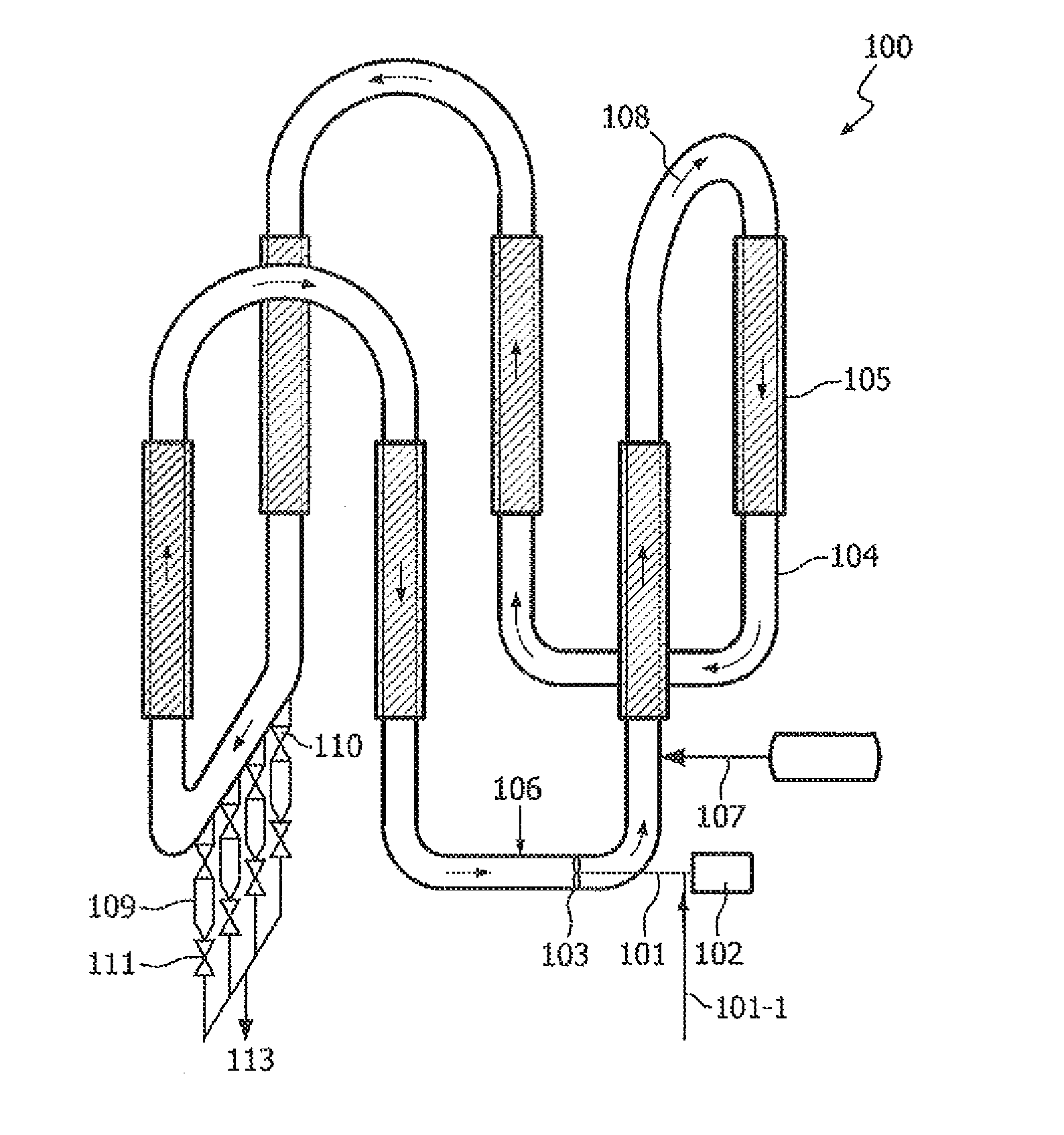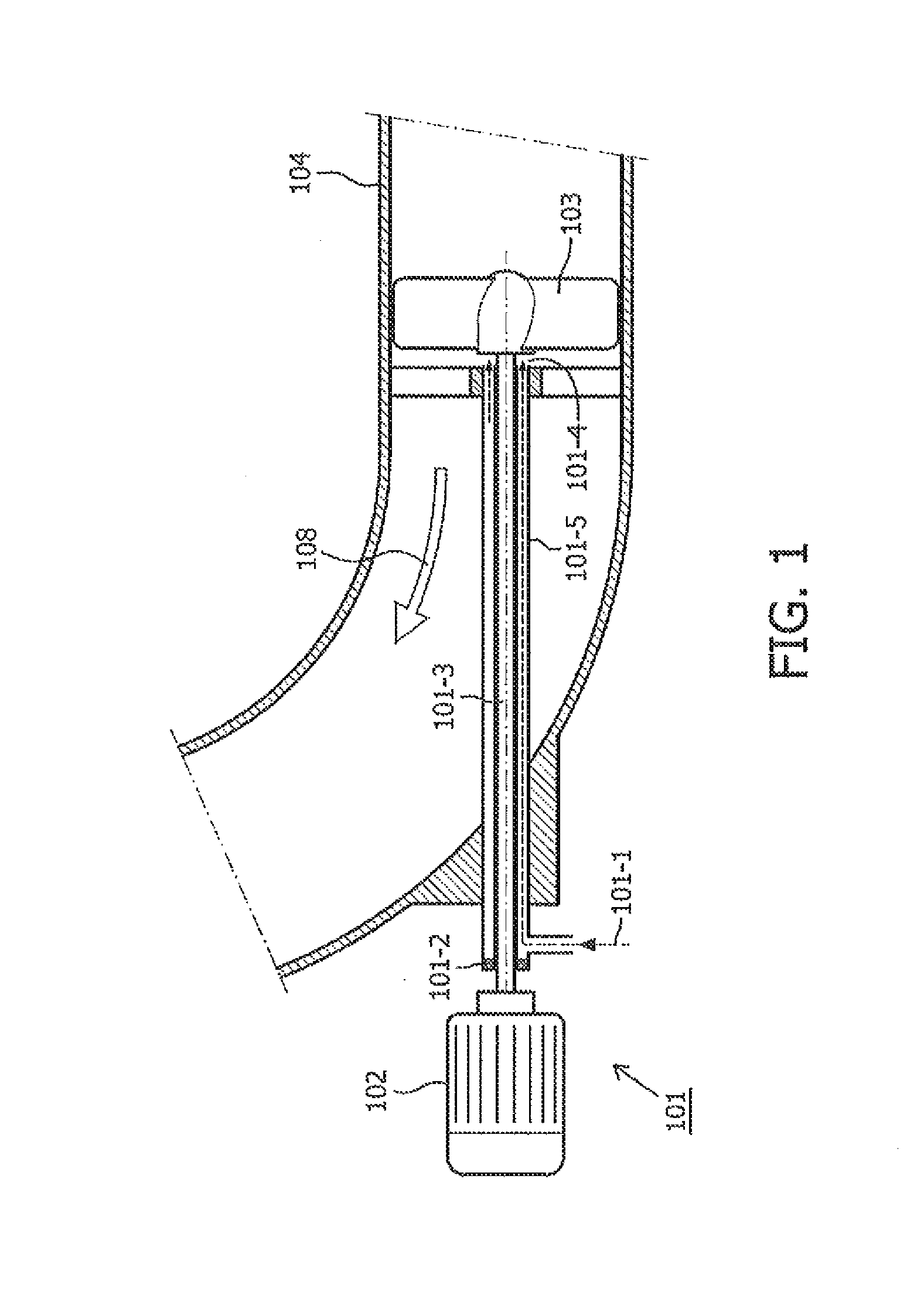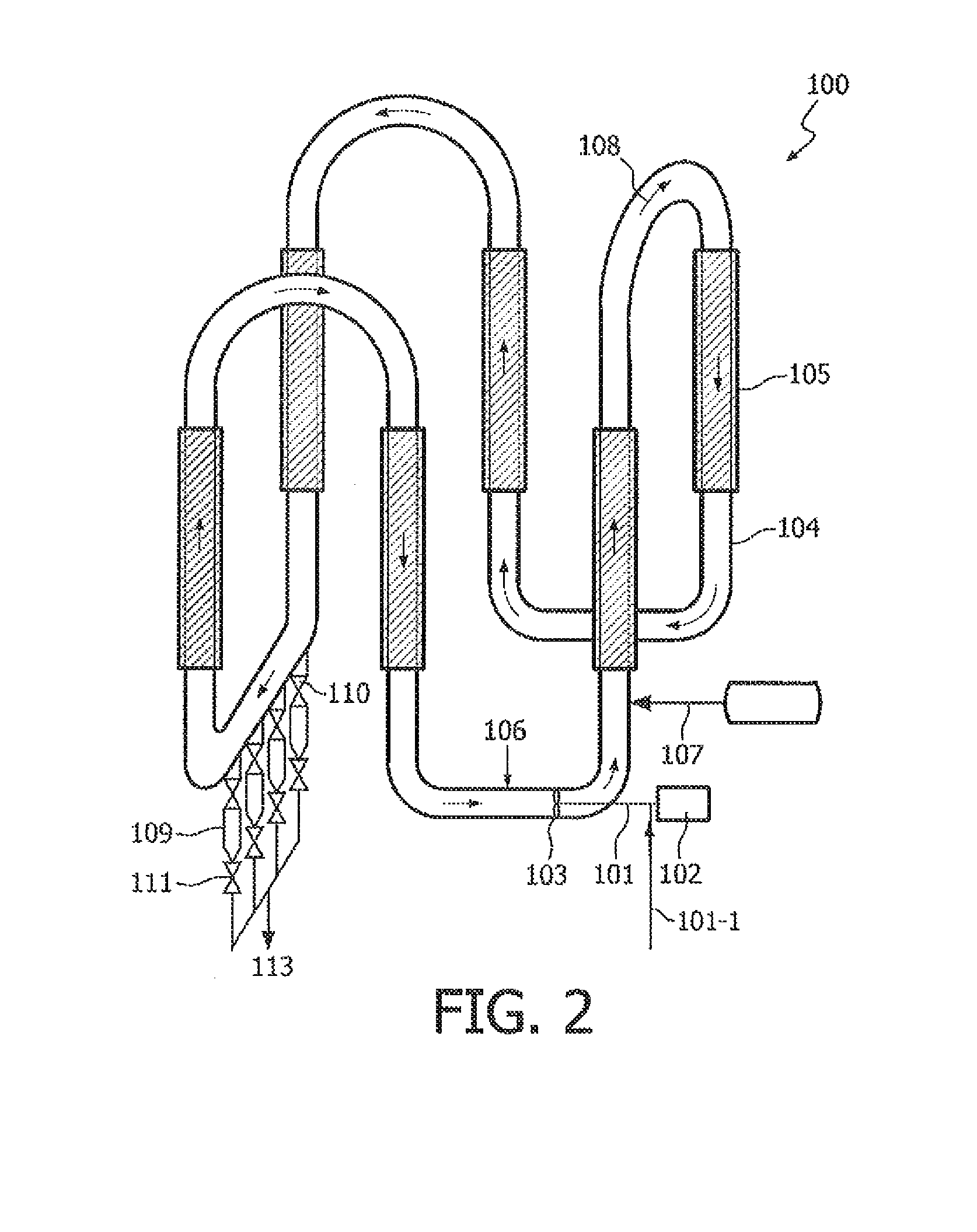Process for preparing polyolefins
a polyolefin and polymer technology, applied in chemical/physical/physical-chemical processes, chemical apparatus and processes, chemical/physical/physical-chemical stationary reactors, etc., can solve the problems of reactor or down stream polymer processing equipment failure, loss of reactor control, and decrease in heat exchange efficiency between the bulk of the reactor and the coolant around the reactor, etc., to achieve better control of process conditions, reduce production costs, and reduce blockage
- Summary
- Abstract
- Description
- Claims
- Application Information
AI Technical Summary
Benefits of technology
Problems solved by technology
Method used
Image
Examples
example 1
[0096]Ethylene monomer, comonomer, Ziegler-Matta catalyst, hydrogen, TEAI activating agent and about 18 t / h of isobutane diluent were fed to a double loop reactor. An axial pump as illustrated in FIG. 1 was used to circulate the resulting slurry in the first loop reactor. 81 g / h of an 2.5% by weight of Stadis 450 anti-fouling composition dissolved in hexene (density of around 0.7 kg / l) was introduced (leading to around 1157 cc / h feeding of antifouling in hexene) into the first loop reactor. A slurry comprising solid polyethylene particles in diluent was obtained with around 4 ppm antifouling agent as a function of diluent.
[0097]The anti-fouling agent was introduced through the sleeve provided around the shaft of the pump and was fed against the side of the impeller attached to the shaft of said pump under flushing with isobutane diluent of 750 kg / h, providing about 108 ppm anti-fouling agent as a function of the diluent in the anti-fouling feed through the pump.
[0098]Pump operation ...
example 2
[0099]Ethylene monomer, comonomer, a metallocene catalyst, hydrogen, activating agent and about 12.25 t / h diluent were fed in a single loop reactor. An axial pump was used to pump around the resulting slurry. 12.25 g / h of an anti-fouling composition comprising 2.5% of Synperonic PEL121 anti-fouling agent dissolved in hexene (density of around 0.7 kg / l) was introduced into the reactor (thus around 700 cc / h feeding of antifouling in hexene). The anti-fouling agent was introduced through the sleeve provided around the shaft of the pump and was fed against the side of the impeller attached to the shaft of said pump under flushing with isobutane diluent of 750 kg / h in the bend of the reactor path around the impeller of the pump, providing about 16.3 ppm anti-fouling agent as a function of the diluent in the anti-fouling feed through the pump. A slurry comprising solid polyethylene particles in diluent was obtained with around 1 ppm of anti-fouling agent as a function of diluent. Pump ope...
example 3
[0100]Set up 1 (according to an embodiment of the invention): Ethylene monomer, comonomer, Ziegler-Matta catalyst, hydrogen, TEAI activating agent and about 15 t / h of isobutane diluent were fed to a double loop reactor. An axial pump as illustrated in FIG. 1 was used to circulate the resulting slurry in the first loop reactor.
[0101]69.3 g / h of a 2.5% by weight of Stadis 450 anti-fouling composition dissolved in hexene was introduced (leading to around 985 cc / h feeding of antifouling in hexene) into the first loop reactor. The anti-fouling agent was introduced through the sleeve provided around the shaft of the pump and was fed against the side of the impeller attached to the shaft of said pump under flushing with isobutane diluent of 750 kg / h, providing about 110 ppm anti-fouling agent as a function of the diluent in the anti-fouling feed through the pump.
[0102]Set up 2 (comparative): Ethylene monomer, comonomer, Ziegler-Matta catalyst, hydrogen, TEAI activating agent and about 15 t...
PUM
| Property | Measurement | Unit |
|---|---|---|
| anti-fouling | aaaaa | aaaaa |
| concentration | aaaaa | aaaaa |
| weight | aaaaa | aaaaa |
Abstract
Description
Claims
Application Information
 Login to View More
Login to View More - R&D
- Intellectual Property
- Life Sciences
- Materials
- Tech Scout
- Unparalleled Data Quality
- Higher Quality Content
- 60% Fewer Hallucinations
Browse by: Latest US Patents, China's latest patents, Technical Efficacy Thesaurus, Application Domain, Technology Topic, Popular Technical Reports.
© 2025 PatSnap. All rights reserved.Legal|Privacy policy|Modern Slavery Act Transparency Statement|Sitemap|About US| Contact US: help@patsnap.com



